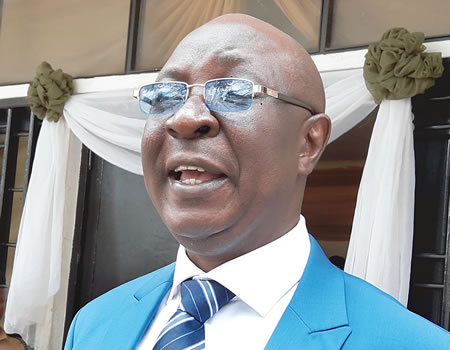A member of the Monetary Policy Committee (MPC) of the Central Bank of Nigeria (CBN), Professor Adeola Adenikinju has called on the monetary authority not to lower its guard but continue to monitor the banks and implement policies to consolidate and further improve the financial system indicators (FSI).
In a personal statement of members accompanying the Communique of January meeting of the MPC, Adenikinju noted that there is positive trend in all financial system indicators between November 2018 and January 2019.
According to him, the None-Performing Loans (NPLs) ratio continues its downward trend, capital adequacy ratio of the banking sector improved three consecutive months, liquidity ratio inched northward, aggregate assets and deposits of the banking sector also rose over the same period.
The Professor of Economics and a Research Professor at the Centre for Econometrics and Allied Research, University of Ibadan, however regretted that aggregate credit expansion to the real economy continues to pose serious challenges.
His words: “Net credit growth to the private sector is lower than provisional benchmark for 2018. The high interest rate spread and the high lending rates are challenges that require new and innovative approaches.”
According to him, the proposed National Microfinance Bank; strengthening of the existing Micro Finance Banks, and other initiatives by the CBN to promote financial inclusion and access to credit by those in the rural areas, semi/urban; and even the poor areas in the cities across the country at affordable interest rates would boost real sector activities at the Micro Small and Medium scale Enterprises (MSMEs) level.
The CBN he said, has in the past few years been successful in managing inflation and exchange rate expectations. It has also succeeded in creating the environment for foreign capital inflows, however, there is a need for coordination between monetary and fiscal authorities to unlock the economic potentials of the economy and of Nigerians.
He believes that addressing infrastructure constraints and measures to promote competitiveness of local products will be critical to economic diversification. Widening the revenue base beyond oil revenue will enhance the fiscal space for the government in 2019.
According to him, this is a time to build fiscal buffer to cushion the economy against macroeconomic shocks and help finance diversification objectives. The current and growing level of national debt should be urgently addressed before it becomes unsustainable.






